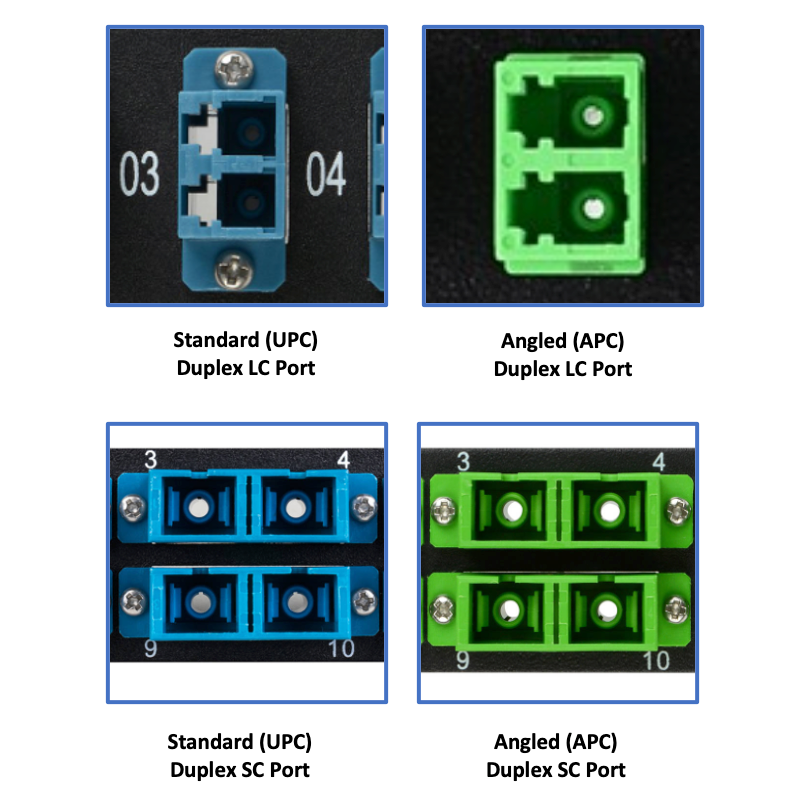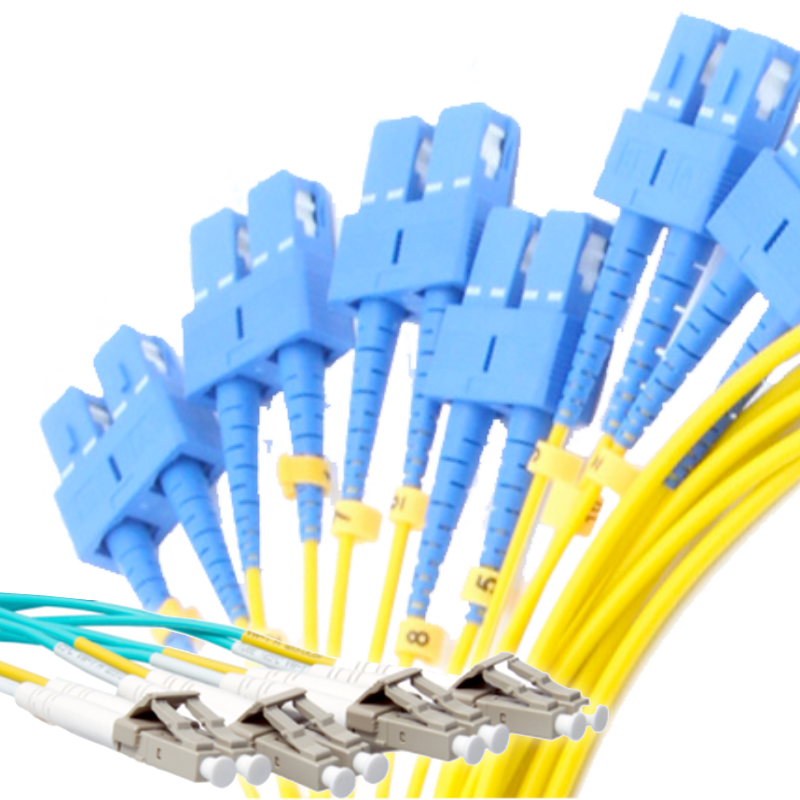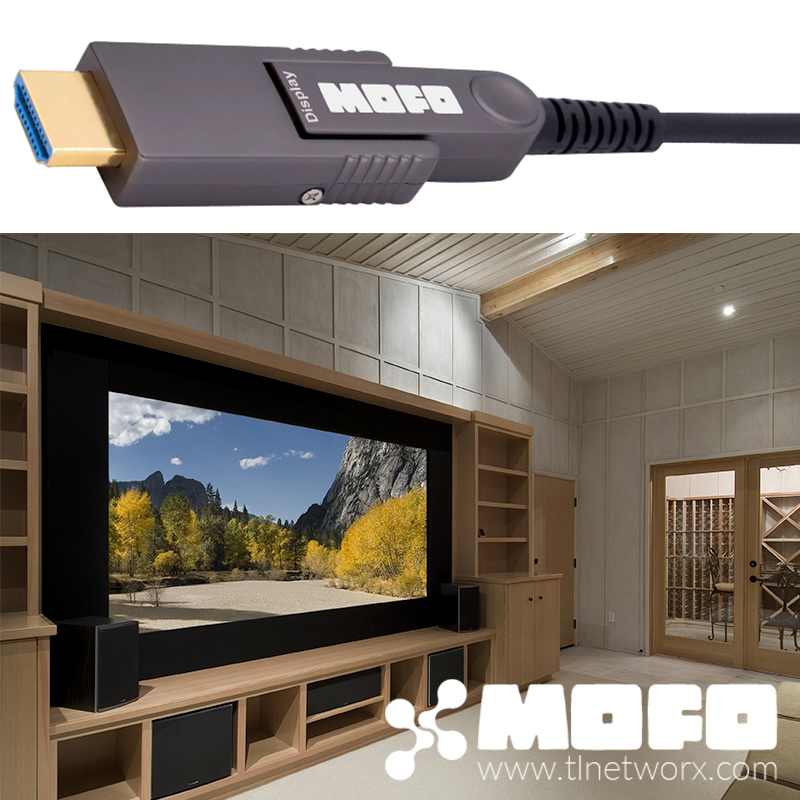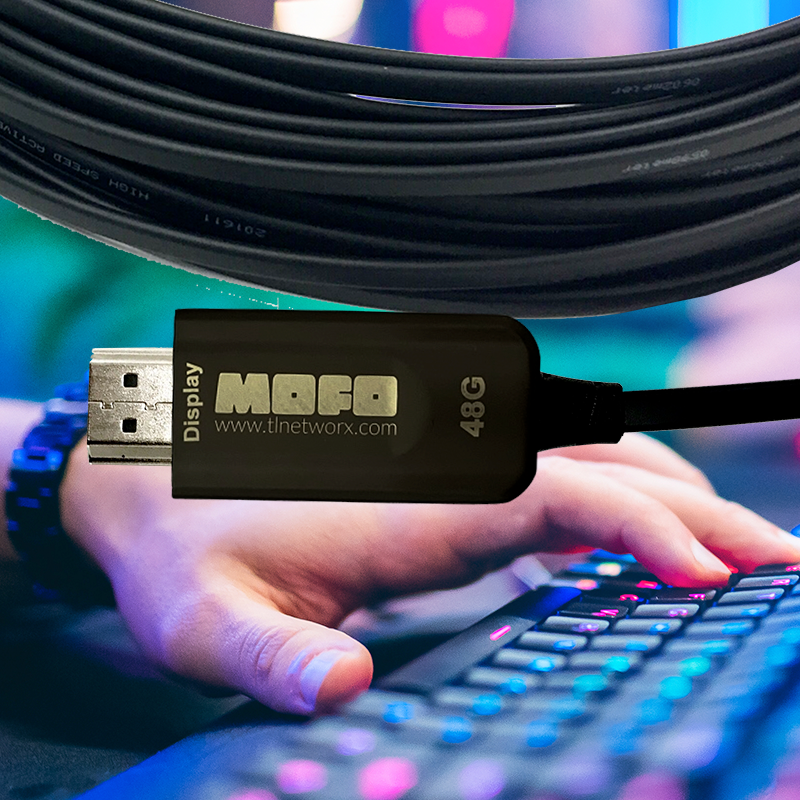Understanding Fiber Connectors: UPC vs. APC

Fiber optic cable typically follows an industry-standard color code: a yellow jacket denotes single mode, an aqua jacket denotes multimode OM3, an orange jacket denotes multimode OM2, etc. But what about the connectors? What's the difference between blue connectors and green connectors? After all, both find their way onto single mode and, selectively, multimode cable.
The answer has to do with the connector endface polish, or the angle of connection, and the good news is connectors also follow industry-standard color codes. Aqua and blue denote a straight through (or UPC) polish and green denotes an angled (or APC) polish.

The angle of polish is important and UPC connectors should not be mixed with APC connectors. Generally speaking, best practice is to match the color of the connector to the color of the port.
APC connectors are polished at an 8 degree angle, while UPC connectors are polished with no angle, though they do have a slight curvature to ensure better optical core alignment. The straight-through connection on UPC connectors ultimately affects light reflection and UPC connectors operate with a much lower optical return loss (or ORL) thereby providing a more reliable and stable signal in network and AV distribution applications.

So why do some applications call for APC connections? Electronics that rely on higher optical wavelength ranges (typically those above 1500 nanometers), such as those used for RF and telecom distribution, can be adversely affected by a direct light reflection. For this reason it's common to see APC connectors in outside plant and demarcation wiring.
As stated before, UPC and APC connectors should not be mated together -- they are not compatible. And even more importantly, UPC connectors should never be connected to APC ports and vice versa. This can damage the optical circuits in the electronics.
TechLogix offers cables, connectors and installation accessories in both APC and UPC formats. Please visit www.tlnetworx.com for additional information.




Comments